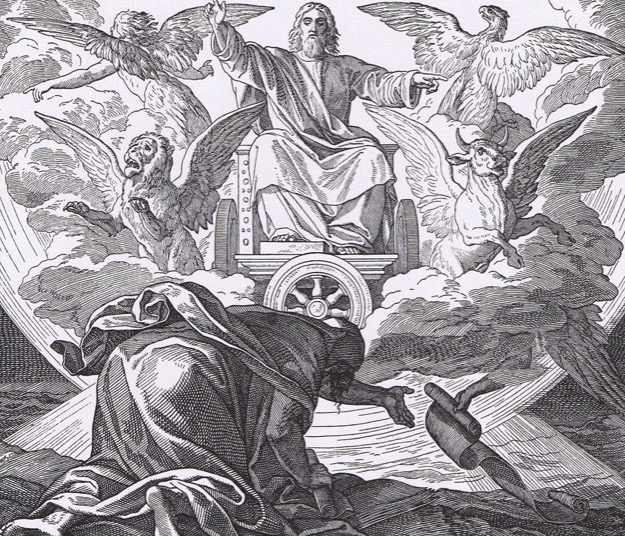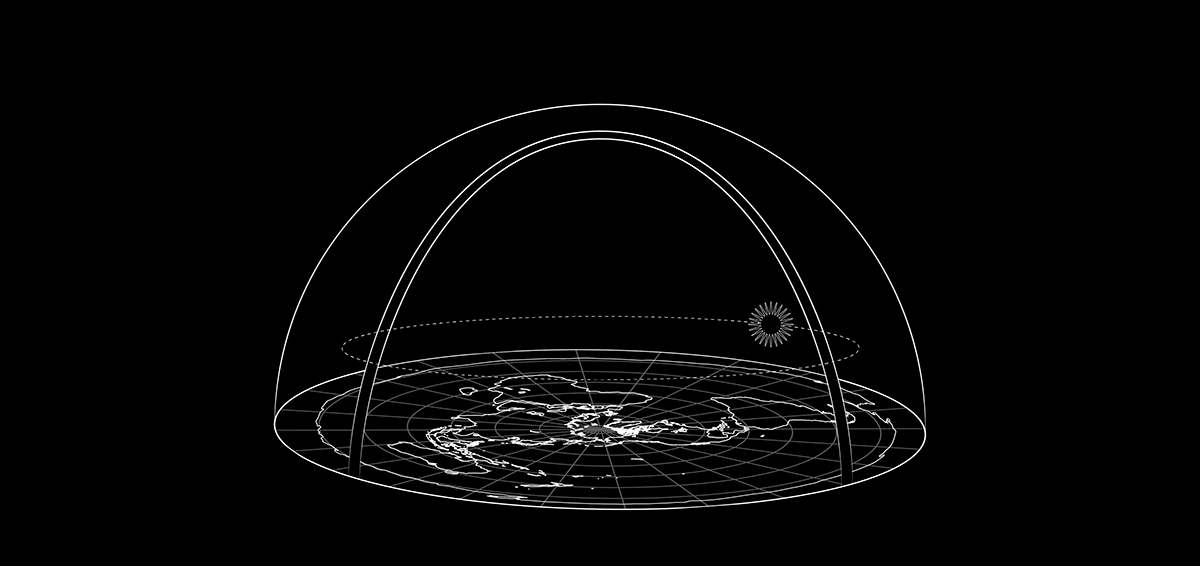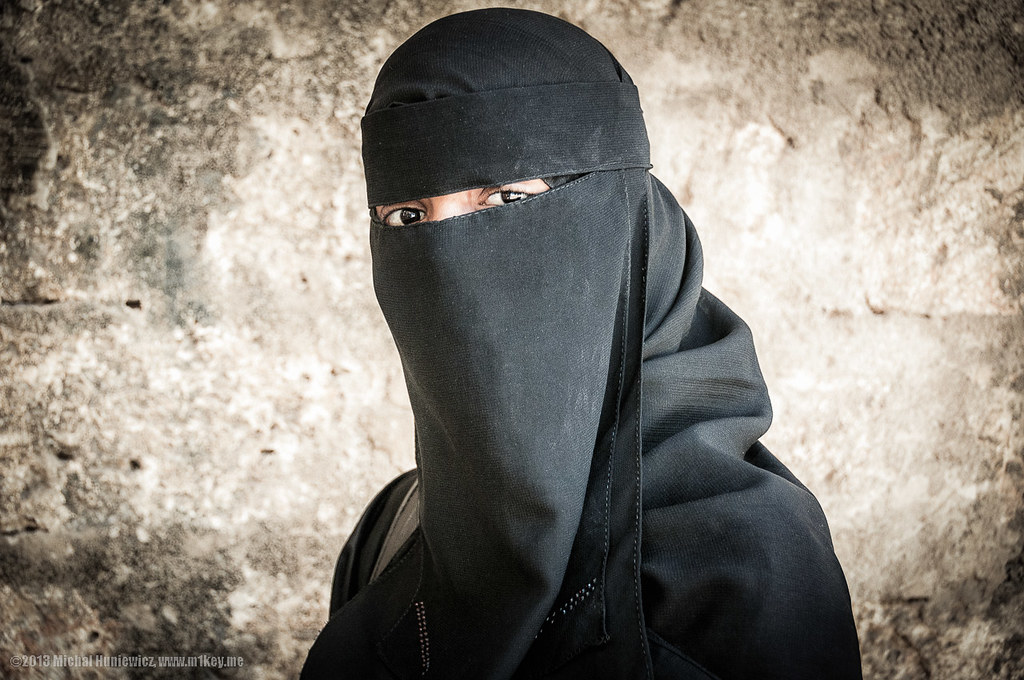If Muhammad had received a revelation (wahy) from the Creator, we would expect 1) the interaction to be similar to interactions that came before, and 2) his reaction to his divine encounter to be similar to the reaction of those who came before him.
When the Angel of the Lord appears, or when other angels appear, they tell the people they are talking to, “Do not be afraid!” if the person is startled by their appearance. Yahweh also frequently delivers words of reassurance through his prophets to his righteous people. (This is just a small sampling of the latter use.)
After this, the word of the Lord came to Abram in a vision: “Do not be afraid, Abram. I am your shield, your very great reward.”
Genesis 15:1
God heard the boy crying, and the angel of God called to Hagar from heaven and said to her ‘”What is the matter, Hagar? Do not be afraid; God has heard the boy crying as he lies there.”
Genesis 21:17
That night the Lord appeared to him and said, “I am the God of your father Abraham. Do not be afraid, for I am with you; I will bless you and will increase the number of your descendants for the sake of my servant Abraham.”
Genesis 26:24
“I am God, the God of your father,’ he said. “Do not be afraid to go down to Egypt, for I will make you into a great nation there.”
Genesis 46:3
But now, this is what the Lord says – he who created you, Jacob, he who formed you, Israel: “Do not fear, for I have redeemed you; I have summoned you by name; you are mine.”
Isaiah 43:1
But the angel said to him: “Do not be afraid, Zechariah; your prayer has been heard. Your wife Elizabeth will bear you a son, and you are to call him John.”
Luke 1:13
But the angel said to her, “Do not be afraid, Mary, you have found favour with God.”
Luke 1:30
But the angel said to them, “Do not be afraid. I bring you good news that will cause great joy for all the people.”
Luke 2:10
and so were James and John, the sons of Zebedee, Simon’s partners. Then Jesus said to Simon, “Don’t be afraid; from now on you will fish for people.”
Luke 5:10
When people aren’t startled by the angels, they do not show fear, except in the sense of awe. They know they are speaking to divine messengers from Yahweh. They take them seriously. But they are not confused by what has just happened. There is exactly one encounter that has an antagonistic element in the Bible, and that is the incident of Jacob wrestling with the Angel, who is later called God the same passage. This has many different layers of meaning (the weird stuff in the Bible is often some of the most important, not for salvation but for contextual understanding), but the thing to carry away at this moment is that Jacob realized early on that he wasn’t facing just a man, and that Jacob was not left terrified and confused but instead confident about the nature of the encounter.
This reaction is similar to the encounters that did not have a physical element. We don’t know Abraham’s reaction to every encounter, but when we do, Abraham fell to the ground in worship and built altars of praise. He was not terrified and uncertain. Jacob exclaimed, “Surely, the Lord is in this place, and I did not know it!” and he built and altar to worship God there. God speaks to people, and they answer–“Here I am!” They listen eagerly to what God says. Unless God gives them a message of warning, repentance, or condemnation, their hearts are raised up, and they proceed with the encouragement of God.
Muhammad received a message that should have been reassuring to a pagan. He’s being told that he’s being contacted by He-Who-Created, that he’s being given secret knowledge, and that the Power that taught humans writing was a generous and beneficent spirit.
So, how did he react?
This is the most complete hadith on the event:
Then Allah’s Messenger (ﷺ) returned with the Inspiration, his neck muscles twitching with terror till he entered upon Khadija and said, “Cover me! Cover me!” They covered him till his fear was over and then he said, “O Khadija, what is wrong with me?” Then he told her everything that had happened and said, ‘I fear that something may happen to me.”
Khadija said, ‘Never! But have the glad tidings, for by Allah, Allah will never disgrace you as you keep good reactions with your kith and kin, speak the truth, help the poor and the destitute, serve your guest generously and assist the deserving, calamity-afflicted ones.”
[After this, she takes Muhammad to consult her uncle.]
Sahih Bukhari 3
Muhammad was obviously terrified. He didn’t know what had happened to him. He didn’t know what Power had spoken to him. This is completely unlike any experience in the Bible. Even Paul, who was blinded by God on the road to Damascus, received an immediate answer to his confusion. He asks, “Who are you, Lord?” and he receives the answer: “I am Jesus of Nazareth, whom you are persecuting.”
But Muhammad leaves his encounter without any answers, in terror and confusion. He knows he has had an encounter with a Power. His response of “Cover me!” is not just one of fear–it was an ancient Semitic practice to cover up in a large garment or cloth when receiving or after receiving interactions with a Power. The Merkabah mystics covered themselves to receive visions, Moses covered his face because even his face showed traces of his interaction with God, and Elijah, after hearing Yahweh’s whisper, drew his cloak over his face. Yet Muhammad still has no idea what kind of Power he just encountered. “He-Who-Created” means nothing to him, and the God who brought writing would point to certain pagan deities, but he leaves with nothing but terror and doubt. This is nothing like biblical encounters with God or angels. (Khadija’s anachronistic pious exclamations really have no place here at all, of course.)
Ibn Ishaq provides more details, starting from the moment that Surah 96:1-5 was given. Muhammad is reported to have said,
So I read it, and he departed from me. And I awoke from my sleep, and it was as though these words were written on my heart. (T. Now none of God’s creatures was more hateful to me than an (ecstatic) poet or a man possessed: I could not even look at them. I thought, Woe is me poet or possessed—Never shall Quraysh say this of me! I will go to the top of the mountain and throw myself down that I may kill myself and gain rest.
So I went forth to do so and then) when I was midway on the mountain, I heard a voice from heaven saying, “O Muhammad! thou art the apostle of God and I am Gabriel.” I raised my head towards heaven to see (who was speaking), and lo, Gabriel in the form of a man with feet astride the horizon, saying, “O Muhammad! thou art the apostle of God and I am Gabriel.” I stood gazing at him, (T. and that turned me from my purpose) moving neither forward nor backward; then I began to turn my face away from him, but towards whatever region of the sky I looked, I saw him as before.
And I continued standing there, neither advancing nor turning back, until Khadija sent her messengers in search of me and they gained the high ground above Mecca and returned to her while I was standing in the same place; then he parted from me and I from him, returning to my family. And I came to Khadija and sat by her thigh and drew close to her.
She said, “O Abu’l-Qasim [Muhammad’s kunya], where hast thou been? By God, I sent my messengers in search of thee, and they reached the high ground above Mecca and returned to me.”
(T. I said to her, “Woe is me poet or possessed.” She said, “I take refuge in God from that O Abu’l-Qasim. God would not treat you thus since he knows your truthfulness, your great trustworthiness, your fine character, and your kindness. This cannot be, my dear. Perhaps you did see something.” “Yes, I did,” I said.)
Then I told her of what I had seen; and she said, “Rejoice, O son of my uncle, and be of good heart. Verily, by Him in whose hand is Khadija’s soul, I have hope that thou wilt be the prophet of this people.”
Ibn Ishaq
(This translation puts together several different manuscripts of Ibn Ishaq, restoring what some editors purged, which is what the T. denotes.)
This narrative seems to have mixed together several different events out of order–it doesn’t make sense for Khadija to have sent messengers after Muhammad when he was known to be away at a cave with food for several days in the company of his nephew Ali, and we will find that the event of his attempted suicide will be repeated multiple times. It seems more logical that Muhammad returned to Khadija and huddled under the garment there, and then later, when he left the city again, after some level of consultation with her cousin, he had additional visions.
Sahih Muslim actually presents an alternative that makes a lot more sense:
Yahyah reported:
I asked Abu Salama what was revealed first from the Qur’an. He said: “O, the shrouded one.” I said: Or “Recite.” [That is, Read!] Jabir said: I am narrating to you what was narrated to us by the Messenger of Allah (ﷺ).
He said: I stayed in Hira’ for one month and when my stay was completed, I come down and went into the heart of the valley. Somebody called me aloud. I looked in front of me, behind me, on the right of my side and on my left, but I did not see any body. I was again called and I looked about but saw nothing. I was called again and raised my head, and there on the Throne in the open atmosphere he, i. e. Gabriel (peace be upon him) was sitting. I began to tremble on account of fear. I came to Khadija and said: Wrap me up. They wrapped me up and threw water on me and Allah, the Exalted and Glorious, sent down this: you who are shrouded! arise and deliver warning, your Lord magnify, your clothes cleanse.”
Sahih Muslim 161d
There is no suicide here and no introduction, but there is another revelation that happened right after his time at the cave of Hira. It seems like the suicides got mixed up with this event. There are minutely different versions of this event in the ahadith, which clarify that it was Surah 74:1-5 that was given, but they were early enough to get confused with the event inside the cave.
Note the throne. This is very significant. Angels don’t sit on thrones. God sits on a throne–this would be a Merkabah vision, as we will explore in a moment. There’s a reason that after Muhammad decides that it’s Allah speaking to him through an angel, he doesn’t get any more throne visions, because they no longer fit his contextualization.
In support of a different chronology for the suicide, we have this narrative from Ibn Sa’d:
Verily, after the first revelation to the Apostle of Allah, may Allah bless him, that came at Hira, it (the coming of revelations) remained suspended for a few days; since he did not see Gabriel, he was much grieved; he went to Thabir and at another time to Hira with the intention of throwing himself down. When the Apostle of Allah, may Allah bless him, was intending to do this from one of these mountains he heard a sound coming from the heaven.
The Apostle of Allah, may Allah bless him, paused for a moment because of the thunderous sound, then he raised his head and lo ! it was Gabriel seated in a chair between the earth and the sky. He was saying: “Muhammad! Thou art surely the Apostle of Allah, and I am Gabriel.”
The Apostle of Allah, may Allah bless him, returned, and Allah had cooled his eye and strengthened his heart; then revelations followed one after the other.
Ibn Sa’d
When this happened isn’t clear in this narrative except it wasn’t until days after the event at Hira.
We will see that this isn’t the only time that Muhammad is said to try to kill himself, and the actual message from Jibril does not actually fit the sequence of events well, either. There would be no need to consult with Khadija’s cousin if Muhammad already believed he understood what was going on.
The reason for Muhammad’s attempt on his own life are also quite different between the different narratives. Was he wanting to throw himself down a mountain because he was afraid he was going to be an ecstatic poet, or was he wanting to throw himself down the mountain because he couldn’t get the Power to return and give him more visions?
Throughout the Islamic sources, there are times when Muhammad is strongly distanced from paganism to the point of contradiction and inaccuracy, and this is one of them. At the onset of his revelations, Muhammad was in a pagan holy site where people would go to receive or induce vision-dreams. We are already told that he is in the custom of receiving these vision-dreams there when he encounters the Power that gives him the beginning of Surah 96. Clearly, then, he was frightened because of the type of encounter that he had, not because he had any encounter at all. And despite the resistance of Islamic tradition to call the Quran poetry, one of its major “proofs” (often held to be the greatest proof of all) is its “unapproachable style,” its “supreme eloquence,” its “matchlessness” as a work of literature (AKA, what anyone of Muhammad’s day would have called poetry). So how rational is it that, having encountered the very thing he came for, Muhammad immediately went to kill himself, regardless of how frightening it was? How rational is it that Muhammad would hate all poetry as a pagan practice and then use it as the main argument for the divine origin of the Quran? Even as the Islamic sources try to separate the Quran from the pagan spiritual poetry framework, it uses the pagan view of literature to validate itself.
There is another issue with this particular vision, and that is that it doesn’t fit any model of an angelic visitation. The figure on the chair is clear throne imagery, and the entire scene reeks of Merkabah mysticism–that is, the Jewish mystical practice that attempted to get visions of God on his throne-chariot, as told in Ezekiel. This mysticism diverged strongly from historically orthodox Judaism in the direction of a heretical belief in “secret knowledge,” and it was quite popular in Arabia and Mesopotamia at this time. We will find later that the Quran draws from Merkabah mystical texts for certain passages and that Muhammad was engaged in practices (including cloak-wrapping and speaking to palm trees) that were associated with Merkabah mysticism and even had at least one conversation with a Jewish Merkabah mystic. Muhammad’s age of forty is given a great deal of emphasis in the Islamic tradition, which has no meaning in an Islamic theological context, but the specific age of forty would have mystical Jewish significance, as forty was a sacred Jewish number, as well as showing his maturity, which was considered a prerequisite of full revelation of the Merkabah mysteries. Similarly, Muhammad’s role as figure of wisdom in Mecca is significant to his qualification to be a legitimate Merkabah mystic.
Here is another narration of Ibn Sa’d, which gives yet another context for the vision:
When, at that time, the Apostle of Allah, may Allah bless him, was at Ajyad [near Mecca], he saw an angel, with one foot on the other, in the horizon, and calling: “O Muhammad! I am Gabriel, Muhammad! I am Gabriel.”
The Apostle of Allah, may Allah bless him, was terrified. Whenever he raised his head towards the heaven he saw him; so he returned hastily to Khadijah and conveyed this information to her. He said: “O Khadijah! by Allah, I never hated anything so much as idols and soothsayers, and I am afraid that I shall myself become a soothsayer.”
She said: “My uncle’s son, never ! Do not repeat this. Verily, Allah will not do this with you, because you fulfil (the obligation of) relationship, speak truth, return things entrusted to you and your character is noble.”
[After this, she takes Muhammad to consult her uncle.]
Ibn Sa’d
In another narrative in Ibn Sa’d, Muhammad says to her, alternatively, “O Khadijah, I hear sounds and see light and I fear I am mad.”
At some point, Khadija considers it important to her husband’s sanity to see her uncle to get clarification on the meaning of his visions, or else she went on her own accord. Muhammad must not know what is happening, or else the trip would not be necessary. But confusion of the events surrounding the first revelation (or inspiration, as it is sometimes rendered) are representative with discomfort with the early material and a strong desire to smooth it over and make the most jarring pieces go away. Moving these reassurances to before Muhammad consults Khadija’s cousin gives a more supernatural origin for Muhammad’s realization of what’s going on, but it then paradoxically removes the entire motivation for the consultation. As we will see, other traditions put Muhammad’s suicide attempts in a more convincing sequence.
Soon, we will learn who Khadija’s cousin is reported to be and what he is reported to have said, and once we have all of those narratives, we’ll be able to make a decent chronology instead of this mixed-up mess.
See the main page on Surah 96:1-5 or the main page on Surah 74:1-5 to continue.
Scriptures taken from the Holy Bible, New International Version®, NIV®. Copyright © 1973, 1978, 1984, 2011 by Biblica, Inc.™ Used by permission of Zondervan. All rights reserved worldwide. www.zondervan.com The “NIV” and “New International Version” are trademarks registered in the United States Patent and Trademark Office by Biblica, Inc.™
Milly Jones did the heavy lifting of actually listing all the “Do Not Fear” verses in the Bible in a blog post, so special thanks to her.






